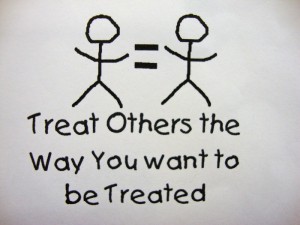
I went to the mailbox the other day. What a letdown.
It could have been a check for one hundred dollars.
It could have been a letter from my sister or my daughter
An invitation to a party
A note from a friend
An announcement of someone’s newest arrival
Or even my favorite magazine.
But it was nothing personal – just junk advertisements mailed to “Occupant” – utterly useless words with gilded promises of:
- a rich windfall of sweepstakes prizes,
- a way to borrow $10,000,
- a new community being developed,
- a new credit card offer,
- or a promise of total security with a new insurance package.
The computer letters clicked “Dear Friend.” One oozed “My dear Mr. Perry.”
No one wrote “Dear Richard.”
I needed a personal touch that day. I ached to know that someone remembered. That someone lifted a pen, took some time, sealed an envelope and put a live stamp on it… for ME, at MY house, in MY town.
But the only mail I got wanted my money, my vote, my action.
…
I came across this story many years ago. I don’t know who wrote it, and I’ve tried to find out. But it perfectly describes the feeling a person gets when the relationship is one-sided – when all the other party wants is something from us.
Is that how your donor feels when they think of you and your relationship with them? I hope not. But you should take inventory right now, at the beginning of this year, and ask yourself the following questions:
- When you think of your donor, do you first think of them as a source of cash – as a way to reach the goals you have set?
- When you plan to meet with or write to your donor, is the primary purpose of your communication to set up an ask?
- When you create your moves management plan for each donor, are all of the moves related to how you can get the money?
If you answered “yes” to all of these questions, then you are not treating your donor as partner, one of the very important things every donor wants. Partnership means different things to different donors. Some donors want full involvement; others simply want to know that they are sitting at the table making a difference. No donor wants to be a source of cash.
Take time to think this through right now.
I know you are under a great deal of pressure to deliver economic value to the organization you work for. And that is real pressure – something you face every day.
It may seem counter intuitive, not to mention time consuming, to have to “worry” about treating a donor as a partner. I understand. It is counter intuitive. It is far easier to just “go for the money” and be done with it. But that is a short cut you do not want to take, because you will eventually lose the donor if you treat them that way.
And if occasionally you forget this important value in your planning and relating to your donor, at the very least, ask this question as you engage with each donor: “How would I want to be treated if I were the donor?” And then follow your heart and spirit with the answer you give.
Richard
Read the whole series:
![s-where-to-find-a-partner[1]](https://veritusgroup.com/wp-content/uploads/2017/01/s-where-to-find-a-partner1-2.jpg)




0 Comments
Trackbacks/Pingbacks